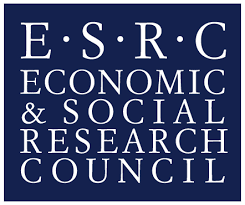Evimed
|
Project start date: 01/09/2015 Duration: 24 months Project Funder: Economic and Social Research Council (United Kingdom) Project Partners: Middlesex University (Lead Partner) and the Mediterranean Observatory on Migration, Protection and Asylum (MOMPA), Borderline Sicily (Italy), the Greek Council for Refugees (Greece), the People for Change Foundation (Malta). |
About the Project
EVI-MED is conducting data collection and analysis regarding the so called Mediterranean 'migration crisis' in order to address the lack of reliable data and a multiplicity of governmental and non-government agencies currently handling large flows of migrants and refugees. Within this context, EVI-MED will map the nature and extent of the Mediterranean migration crisis, identifying the structural aspects and outcomes of rapidly changing practices undertaken by States and NGOs, as well as analysing the rationale, plans and trajectories of diverse groups of migrants and asylum seekers crossing the Mediterranean. In doing so, EVI-MED will provide insights into the major humanitarian, social, economic and political implications for the principal countries of arrival – above all Italy and Greece – as well as Malta, which is a central pillar of the search and rescue effort.
In the long term, this project seeks to create an extensive data resource that analyses the dynamics of Mediterranean migrant flows, reception and pressure points with insights from countries of origin to contribute to:
In the long term, this project seeks to create an extensive data resource that analyses the dynamics of Mediterranean migrant flows, reception and pressure points with insights from countries of origin to contribute to:
- Better informed reception policy by EU Member States that will manage migrant flows effectively.
- To encourage adherence to the EU Reception Conditions Directive.
- To strengthen the knowledge base for the area, not least by making information and analysis publicly available
- Policy makers, practitioners and the research community. A database, which will be compiled of qualitative research, official statistics and statistics compiled by relief agencies, will act as an evidence base for planning, advocacy and fundraising.
- Media and political narratives on Mediterranean migration, by providing individual migrants with a voice to recount their life histories and experiences.
Aims and Objectives
The objectives of the EVI-MED Project are:
- To compile a synthetic database of migration characteristics and trends across the Mediterranean, in order to highlight how these are changing and what impact government policies may have on migration decisions and experiences along the route.
- To create an evidence base on the profiles, routes, experiences, motivations and plans of those who migrate to Europe gathered through structured questionnaires and interviews.
- To systematically map official reception systems in Sicily, Malta and Greece, identifying governmental and non-governmental actors involved in the identification, management, reception, integration and potential return of migrants who make the journey across the Mediterranean. The interactive maps will visualise flows and the spatial effects on reception and related service provision, thus allowing for better planning and coordination.
- To analyse the dynamics of the migration process and reception situations along the Mediterranean through information derived by data-sets, interviews with experts and practitioners and ongoing research activities.
Background
The inability to agree on and implement a sustainable strategy for managing the large flows of migrants and asylum seekers crossing the Mediterranean in the past few years has presented a major challenge for the European Union and its Member States. Specifically, the reception systems of Italy, Malta and Greece have historically been underdeveloped, relying on the expertise and support of UNHCR and other agencies to process and relocate refugees. Despite the introduction of legislation and institutions, the region has failed to provide adequate support for those seeking international protection. Rather, the focus across the region has been on dealing with irregularity – in terms of both border management and regularization of residents. The current tensions within the EU between effective border management and the protection of human rights (above all the right to asylum) has led to a differentiating and at times polarising effect on the provision of services, and specifically migrant reception.
EVI-MED suggests that the absence of comparative data rich analyses is partly responsible for overly simplistic accounts which fail to draw connections between migration processes from point of origin, transit, reception, integration and/or return. Our approach is founded on the value of detailed and expert regional knowledge and the belief in the importance of collecting high quality data, both quantitative and qualitative, in order to inform EU Member States’ reception policy so as to effectively manage migrant flows. As States compete to push back and disperse migrant flows, shifting the burden of responsibility from their territory and sometimes onto the streets, they undermine the spirit of European solidarity, EU law and international human rights law. By examining the way in which reception is designed and experienced, this project will revisit the above claims and identify points of connection and disconnect between the above theoretical bases and the practices of reception and settlement in the EU.
EVI-MED suggests that the absence of comparative data rich analyses is partly responsible for overly simplistic accounts which fail to draw connections between migration processes from point of origin, transit, reception, integration and/or return. Our approach is founded on the value of detailed and expert regional knowledge and the belief in the importance of collecting high quality data, both quantitative and qualitative, in order to inform EU Member States’ reception policy so as to effectively manage migrant flows. As States compete to push back and disperse migrant flows, shifting the burden of responsibility from their territory and sometimes onto the streets, they undermine the spirit of European solidarity, EU law and international human rights law. By examining the way in which reception is designed and experienced, this project will revisit the above claims and identify points of connection and disconnect between the above theoretical bases and the practices of reception and settlement in the EU.
The People for Change Foundation's role
The People for Change Foundation is the local project partner responsible for implementing the research activities in Malta, including by undertaking a mapping of reception services in Malta, and conducting interviews with migrants and stakeholders. We will also participate in the overall planning and implementation of the project together with other project partners.
Project Website
The project website will be available starting in mid-2016



